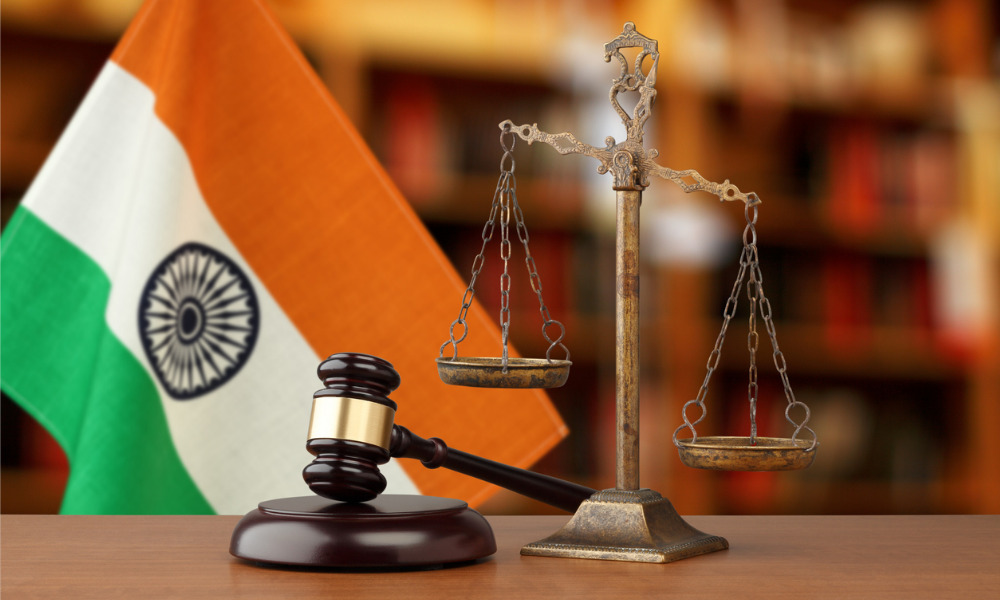Differentiating Between Civil and Criminal Cases
Understanding the distinction between civil and criminal cases is fundamental to navigating the legal system. Civil cases typically involve disputes between individuals or entities over legal duties and responsibilities. These cases often result in monetary compensation or specific performance being ordered by the court. On the other hand, criminal cases are legal proceedings initiated by the government against an individual or organization accused of committing a crime. The outcomes of criminal cases can include fines, community service, probation, or imprisonment.
Key differences include:
- Burden of Proof: In criminal cases, the prosecution must prove the defendant’s guilt ‘beyond a reasonable doubt,’ whereas in civil cases, the plaintiff must show liability ‘by a preponderance of the evidence.’
- Legal Representation: Defendants in criminal cases have the right to an attorney, and if they cannot afford one, the state must provide a public defender. In civil cases, parties may represent themselves or hire an attorney, but they are not entitled to a court-appointed lawyer.
- Consequences: The consequences of criminal cases can include loss of liberty, whereas civil cases typically result in financial penalties or orders to do or not do something.
It is crucial for individuals to recognize which type of case they are dealing with to prepare appropriately and seek the correct legal assistance.
The Structure of the Court System
The legal system is a complex hierarchy of courts that vary from country to country. In the United States, for example, the court system is divided into two primary levels: federal and state courts. Each level has its own set of courts with specific jurisdictions and responsibilities.
- Federal Courts: These courts deal with cases that involve federal law, disputes between states, or cases involving parties from different states. The federal system includes district courts, courts of appeals, and the Supreme Court.
- State Courts: State courts handle the vast majority of legal disputes, including criminal cases, family law, and most civil cases. This system typically includes trial courts, intermediate appellate courts, and a state supreme court.
Understanding the hierarchy and function of each court within the system is crucial for determining where to file a claim. It’s also important to recognize that some cases can be heard in both state and federal courts, which is known as concurrent jurisdiction. Navigating this system requires a clear understanding of which court has authority over the specific legal issue at hand.
Key Legal Terms and Their Meanings
Navigating the legal system can be daunting, especially when confronted with a myriad of terms and phrases that are unfamiliar. Understanding key legal terms is crucial for anyone involved in a legal matter. Here are some essential terms and their meanings:
- Plaintiff: The person or party who initiates a lawsuit by filing a complaint.
- Defendant: The individual or entity against whom a lawsuit is filed.
- Complaint: The document that sets forth the basis of the lawsuit, including the legal reasons and the remedy sought.
- Answer: The defendant’s formal response to the complaint’s allegations, typically admitting or denying them.
- Discovery: A pre-trial process where both parties exchange information and gather evidence.
- Motion: A formal request to the court for a specific action or decision.
- Verdict: The final decision made by a judge or jury on the matters presented during the trial.
These terms represent just the tip of the iceberg. Parties involved in legal proceedings should familiarize themselves with additional terms relevant to their specific cases. Legal dictionaries and online resources can provide further definitions and context, helping to demystify the language of the law and empower individuals to navigate their legal journeys with greater confidence.
Preparing Your Case
Gathering and Organizing Evidence
The success of a legal claim often hinges on the strength and organization of the evidence presented. It is crucial to begin by collecting all relevant documentation, which may include contracts, correspondence, photographs, and medical records. For instance, in cases involving personal injury claims such as mesothelioma, a cancer caused by asbestos exposure, comprehensive medical documentation is essential.
Once the evidence is collected, it should be organized chronologically or by category, depending on the case’s specifics. This can involve creating a timeline of events or grouping documents by type. It is also beneficial to create summaries of each piece of evidence, highlighting key points that support the claim. These summaries can be invaluable during the litigation process, especially when dealing with complex information about mesothelioma and its associated risk factors.
Finally, it is important to review all evidence with an attorney, who can help determine its relevance and admissibility in court. An attorney can also assist in identifying any additional evidence that may be required to strengthen the case, such as expert testimony or additional records.
Finding the Right Attorney
Selecting the appropriate legal representation is crucial for the success of your claim. Begin by seeking referrals from trusted sources or professional legal organizations. Research potential attorneys’ backgrounds, focusing on their experience with cases similar to yours.
Consider the following steps when choosing an attorney:
- Assess their expertise in the specific area of law relevant to your claim.
- Review past case outcomes to gauge their success rate and experience.
- Schedule consultations with several lawyers to discuss your case and evaluate their communication skills and compatibility.
- Discuss fees and costs upfront to understand the financial commitments involved.
Once you have selected an attorney, it is important to maintain open communication. You will need to actively participate in your case, providing necessary evidence and responding to your attorney’s requests promptly. In complex cases, such as asbestos lawsuits, the process can involve collecting evidence, filing complaints, seeking discovery, and potentially reaching a settlement. Your engagement and cooperation with your lawyer are essential throughout the legal process.
Understanding the Statute of Limitations
The statute of limitations is a critical legal concept that sets the maximum time after an event within which legal proceedings may be initiated. When preparing your case, it is essential to be aware of these time limits to ensure that your claim is filed within the permissible period.
- Civil Cases: Different types of civil claims have varying statutes of limitations. For instance, contract disputes might have a different time frame compared to personal injury cases.
- Criminal Cases: The statute of limitations for criminal cases also varies, often depending on the severity of the alleged crime.
To avoid missing the deadline, claimants should:
- Identify the specific statute of limitations for their case type.
- Mark the date of the incident or discovery of harm as a starting point.
- Consult with an attorney to confirm the applicable time limit and any possible extensions or exceptions.
Understanding and adhering to the statute of limitations is not only a matter of legal compliance but also a strategic component of case preparation. Failure to file within the allotted time can result in the dismissal of the case, regardless of its merits.
Filing Your Legal Claim
Navigating the Paperwork: Forms and Filings
The process of filing a legal claim involves a meticulous approach to paperwork, which can often be overwhelming. It is crucial to understand the specific forms required for your case, as each type of legal action has its own set of documents. These forms can typically be obtained from the court’s website or the clerk’s office.
To ensure accuracy and completeness when filling out the necessary paperwork, one should:
- Carefully read all instructions and follow them to the letter.
- Provide all requested information accurately, avoiding any omissions.
- Double-check dates, names, and other details for correctness.
- Have all forms reviewed by an attorney, if possible, to prevent errors that could delay the process.
Once the forms are completed, they must be filed with the appropriate court. This step often requires paying a filing fee, which varies depending on the court and the type of claim. Some jurisdictions allow for fee waivers in cases of financial hardship. After filing, it is important to keep copies of all documents and receipts as part of your records. Timely and organized management of paperwork is a critical component in advancing your legal claim successfully.
Determining the Proper Venue and Jurisdiction
Choosing the right court to hear a case is a critical step in the legal process. The venue refers to the geographic location where a lawsuit is filed, while jurisdiction pertains to a court’s authority to hear a case. Here are key considerations when determining the proper venue and jurisdiction:
- Subject Matter Jurisdiction: Verify that the court has the authority to hear the type of case you’re bringing forward.
- Personal Jurisdiction: Ensure that the court has power over the person or entity you are suing.
- Venue: Choose a location that is connected to where the events of the case occurred or where the parties involved reside.
It’s important to research and understand the rules that govern venue and jurisdiction as they can vary by state and type of court. Filing in the wrong court can result in a dismissal of the case, wasting time and resources. In some instances, the defendant may have the right to request a change of venue if they believe the location is prejudicial to their case. Consulting with an attorney can provide guidance on these complex legal concepts and help ensure that the case proceeds in the appropriate legal setting.
Dealing with Service of Process
Once the initial paperwork is filed, the next critical step in the legal process is the service of process. This is the procedure by which a party to a lawsuit gives an appropriate notice of initial legal action to another party (such as a defendant), court, or administrative body in an effort to exercise jurisdiction over that person so as to enable that person to respond to the proceeding before the court, body, or other tribunal.
- Ensure that the service of process is done in accordance with the law, as improper service may lead to delays or dismissal of your case.
- Utilize professional process servers or law enforcement officers to deliver legal documents, as they are familiar with the rules and regulations.
- Keep meticulous records of the service details, including the date, time, and manner of service, which may be required by the court.
It is important to note that the rules regarding service of process can vary significantly from one jurisdiction to another, and sometimes even within different courts in the same jurisdiction. Therefore, it is crucial to understand the specific requirements for service in your case. If you are unsure about how to proceed, consider seeking legal help. There are resources available, such as websites that provide support and even compensation for certain legal issues, like lung cancer victims due to asbestos exposure, offering a free case review to assist you.
The Pre-Trial Process
Engaging in Discovery
Discovery is a critical phase in the legal process where both parties exchange information pertinent to the case. This stage allows each side to understand the other’s claims and defenses, ensuring that no one is blindsided during the trial.
The discovery process typically involves several steps:
- Interrogatories: Written questions that must be answered under oath.
- Depositions: Oral questioning of parties and witnesses, recorded by a court reporter.
- Requests for Production: Demands for documents, photographs, and other relevant materials.
- Requests for Admissions: Asking the opposing party to admit or deny certain facts to streamline the issues for trial.
It’s essential to respond to discovery requests promptly and thoroughly, as failure to do so can result in legal penalties. Parties should work closely with their attorneys to prepare their responses and to formulate their own discovery requests. The information gathered during discovery forms the foundation of a party’s case and can significantly influence the outcome of the trial.
Filing Motions and Attending Hearings
Once the initial paperwork is filed, the pre-trial phase involves several critical steps, one of which is filing motions. Motions are formal requests to the court asking for a ruling on a particular matter. These can range from motions to dismiss the case to motions for summary judgment, where one party seeks a decision in their favor without a trial.
- Motion to Dismiss: A request to terminate the case before it goes to trial, often based on procedural grounds.
- Motion for Summary Judgment: A plea for the court to rule in favor of the filing party because there is no dispute over the material facts of the case.
- Discovery Motions: These may be necessary if one party is not complying with discovery requests.
Attending hearings is another key aspect of the pre-trial process. Hearings allow the judge to make decisions on various motions and to manage the progression of the case. It is essential for parties to be well-prepared and punctual for these hearings, as they can significantly influence the direction and outcome of the legal proceedings. The judge may also set schedules for future steps in the case during these sessions.
Negotiating Settlements and Mediation
Negotiation and mediation are alternative dispute resolution methods that can save time and resources for both parties involved in a legal claim. These processes often involve a neutral third party who assists in reaching a mutually agreeable solution without the need for a trial.
- Negotiation is typically the first step, where the parties communicate directly or through their attorneys to settle the dispute. It is informal and flexible, allowing for creative solutions tailored to the specific needs of the parties.
- Mediation involves a mediator who facilitates the discussion and helps the parties understand each other’s positions. Unlike a judge or arbitrator, a mediator does not decide the case but works to help the parties find common ground.
Successful negotiation or mediation can result in a settlement agreement, which is legally binding once signed by both parties. It’s crucial to approach these discussions with a clear understanding of one’s goals and the minimum terms acceptable. Legal counsel can provide valuable guidance throughout this process, ensuring that one’s rights and interests are adequately represented and protected.
Trial and Beyond
Presenting Your Case in Court
When the time comes to present your case in court, it is crucial to have a well-prepared strategy. The presentation of a case is a structured process, often beginning with an opening statement that sets the stage for the evidence and testimony to follow.
- Opening Statement: This is your opportunity to outline the case to the judge or jury, setting the tone for what is to come.
- Witness Testimony: Witnesses are called to provide their accounts of the facts. It is essential to prepare them thoroughly to ensure their testimony supports your case.
- Evidence Presentation: Physical evidence, documents, and expert testimony are presented methodically to build a compelling narrative.
- Closing Argument: This final appeal to the court summarizes the evidence and aims to persuade the judge or jury of your position.
Throughout this process, it is important to adhere to the rules of evidence and procedure. An experienced attorney can guide you through these complexities, ensuring that your case is presented in the most effective manner. For those dealing with specific claims, such as filing asbestos claims after a loved one’s death from mesothelioma, understanding the options—lawsuits, trust fund claims, and veterans benefits claims—is vital. Legal guidance is available to help families navigate these challenging situations.
Understanding Jury Selection and Deliberation
The jury selection process, also known as ‘voir dire,’ is a critical stage where attorneys for both sides question potential jurors to determine their suitability for the case. Factors such as biases, personal experiences, and the ability to deliberate fairly are assessed. Attorneys may use peremptory challenges or challenge for cause to dismiss certain jurors without needing to provide a reason or by stating a specific cause, respectively.
Once the jury is selected, the trial proceeds to the deliberation phase after closing arguments. This is when jurors convene in private to discuss the case and reach a verdict. The following points outline the deliberation process:
- Jurors review the evidence and testimony presented during the trial.
- They must consider the judge’s instructions on the applicable law.
- Discussions are meant to be thorough and impartial, with each juror having an equal voice.
- The goal is to reach a unanimous decision, though some jurisdictions allow for non-unanimous verdicts in certain cases.
The outcome of jury deliberation is pivotal, as it determines the final verdict of the trial. The jurors’ ability to analyze the facts objectively and apply the law as instructed is the cornerstone of a fair trial and the justice system at large.
Post-Trial Motions and Appeals
After the trial concludes, the legal journey may not be over. Parties dissatisfied with the verdict can pursue post-trial motions, which are requests for the court to alter or reconsider its decision. These motions must be filed within a specific timeframe after the verdict and can include requests for a new trial or a judgment notwithstanding the verdict.
If post-trial motions are unsuccessful, an appeal can be the next step. The appeals process involves a higher court reviewing the trial court’s application of the law. It’s important to note that appeals are not a re-trial of the case; rather, they focus on legal errors that could have affected the outcome. The appellant must demonstrate that such errors occurred, and the appellate court will either affirm the original decision, reverse it, or remand the case back to the trial court for further proceedings.
Navigating post-trial motions and appeals requires a deep understanding of legal procedures and precedents. Resources such as legal databases, law libraries, and expert legal counsel can be invaluable. For those dealing with specific issues like mesothelioma or asbestos exposure, specialized websites provide information on legal aspects and resources for patients and veterans, which can be particularly helpful during this challenging phase.




